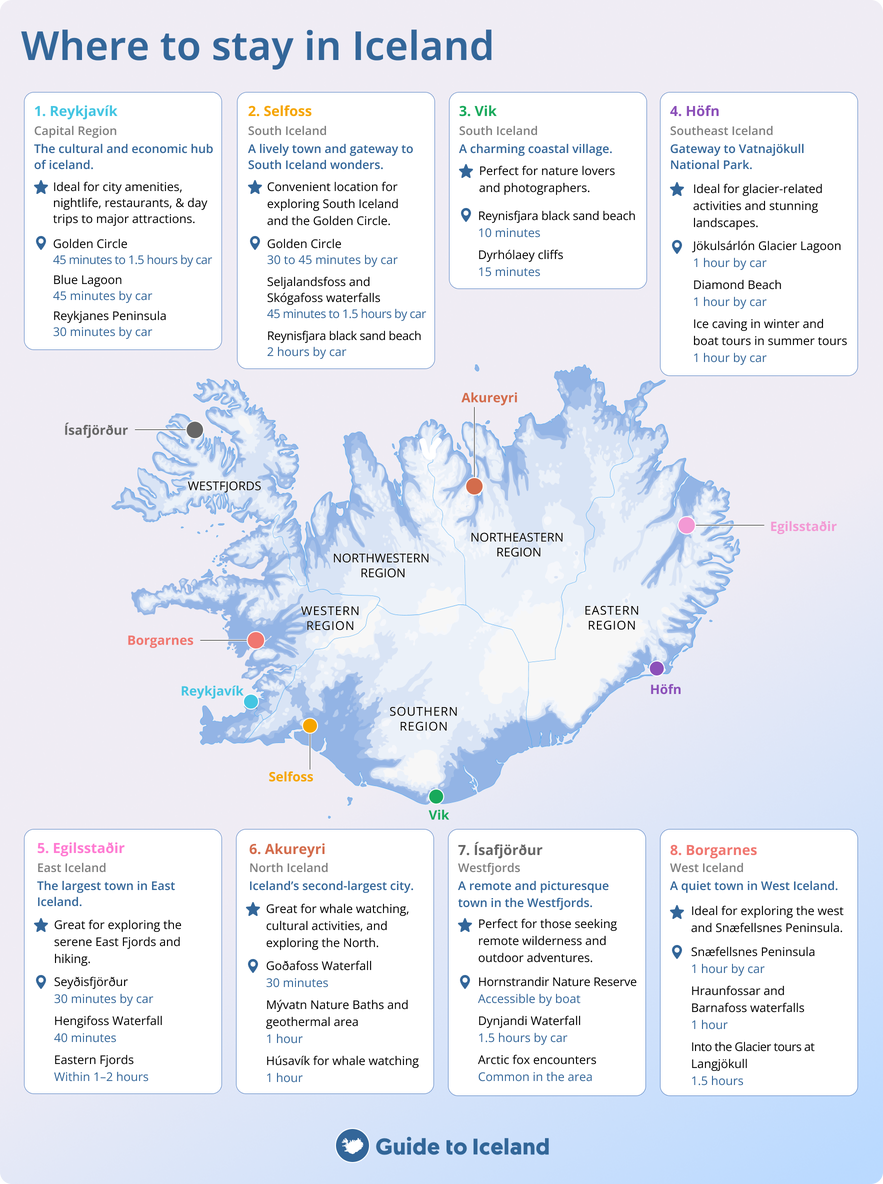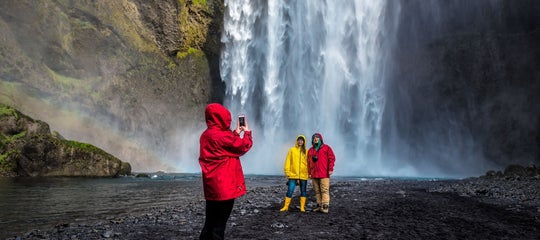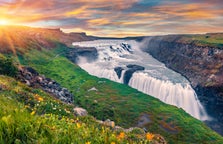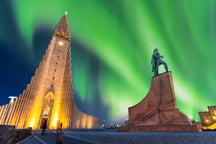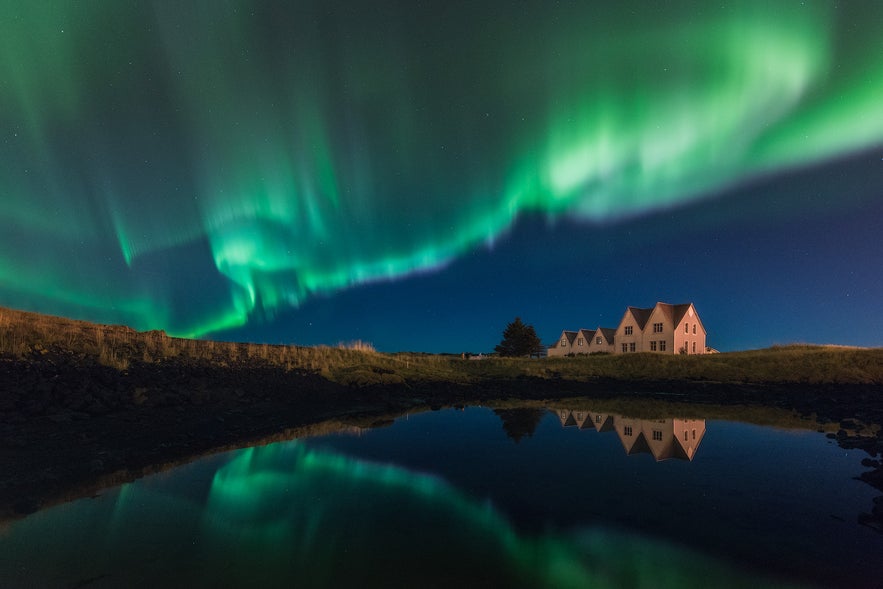
Thinking about buying property in Iceland? This guide covers everything from legal requirements to finding the perfect location. Keep reading to get started!
Buying property in Iceland is a significant commitment, and understanding the process is essential. Key steps include obtaining residency, securing a Kennitala (Icelandic ID number), and choosing the right location.
Why You Can Trust Our Content
Guide to Iceland is the most trusted travel platform in Iceland, helping millions of visitors each year. All our content is written and reviewed by local experts who are deeply familiar with Iceland. You can count on us for accurate, up-to-date, and trustworthy travel advice.
Exploring different stays in Iceland can also give you valuable insight into the housing styles and regions before making a long-term decision.
If you're considering relocating, check out our guides on how to move to Iceland and finding a job in Iceland to help with the transition. Booking a vacation or exploring different regions with self-drive tours can help you get to know the country better before moving.
Researching different regions is crucial, and exploring areas like the Golden Circle can give you a better sense of potential locations. Whether you're looking for a permanent home or an investment property to rent to visitors, Iceland’s housing market offers ever-changing opportunities.
Key Takeaways
-
Foreigners can buy property in Iceland, but non-European Economic Area (EEA) citizens need special permission from the Ministry of Justice.
-
Real estate prices in Reykjavik are high, but more affordable housing options are available around the edge of the capital region, in areas like Hafnarfjordur and Mosfellsbaer.
-
Investing in Icelandic property is an option, but rental regulations apply, especially for Airbnb-style accommodations.
- Learn about the Icelandic Alphabet and Language Basics
- See also the 10 Amazing Icelandic Things the Locals Take for Granted
Purchasing Property as a Foreigner in Iceland
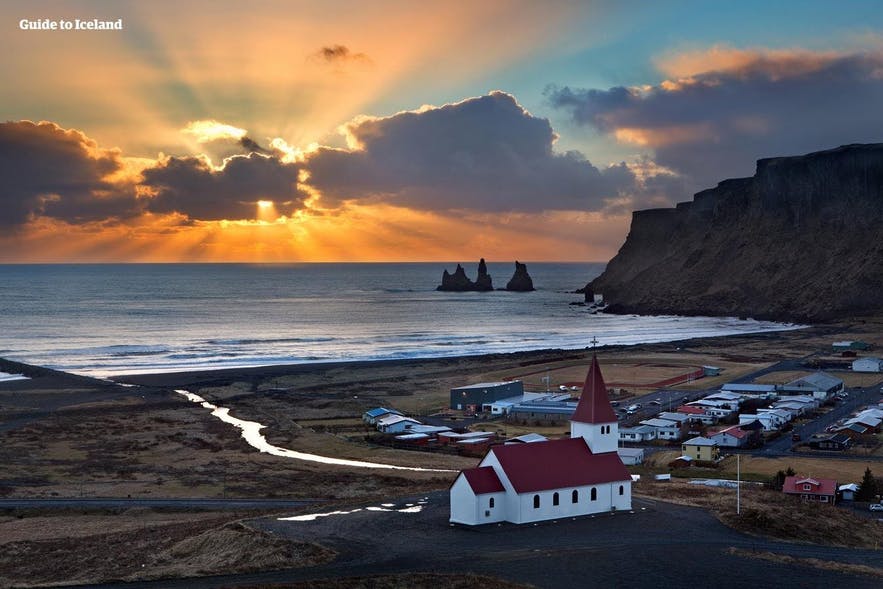
When we look at Icelandic travelers, the majority hail from the US (28.3%), with guests from the UK (12.5%), Poland (6%), France (4.5%), and Italy (3.6%) following.
These figures reflect property buyers in Iceland, with Americans taking the crown for their purchasing interest. It's worth noting the sheer number of Icelanders living abroad who choose to purchase a second home in their mother country.
Second-property purchases have undoubtedly increased since Iceland's economic recovery following the 2008-2011 financial crisis.
- See also the 15 Reasons To Visit Iceland
One of the overarching rules that applies to foreign and future property owners is the need to gain approval from the Ministry of Justice in Iceland. The ministry handles various civic issues, including human rights, immigration, policing and personal rights, elections, etc.
Housing Financing Fund claims that European Economic Area (EEA) citizens legally domiciled in Iceland can purchase real estate like any natural-born citizen.
If you are from a country outside the EEA and plan to stay in Iceland for more than three months, you must obtain a residence permit from the Icelandic Directorate of Immigration.
Property buyers will also need a Kennitala, an Icelandic ID number required for Iceland real estate transactions, employment, health insurance, and tax purposes.
Those who don't want to live in Iceland can purchase a property if they seek special permission from the Ministry of Justice.
However, you should consider spending some time in Iceland to learn about the real estate market. This time will allow them plenty of opportunities to understand the ebbs and flows of the trade.
The Property Buying Steps
 Buying property in Iceland requires several key steps, including the following:
Buying property in Iceland requires several key steps, including the following:
-
Obtain permission (if required): Non-EEA citizens must apply for special approval from the Ministry of Justice.
-
Get a Kennitala: An Icelandic ID number is essential for property transactions.
-
Secure financing: Foreign buyers may need to arrange financing through Icelandic banks or international lenders.
-
Find a property: Work with a local real estate agent to explore available listings.
-
Make an offer and sign a contract: Once the seller accepts an offer, both parties sign a purchase agreement.
-
Pay fees and taxes: Expect costs such as a real estate agent’s fee (1.5%-2.4%), stamp duty (0.8% of property value), and registration (0.1% of property value).
-
Finalize the transaction: Complete the legal paperwork and officially register the property under your name.
Real Estate Prices in Iceland
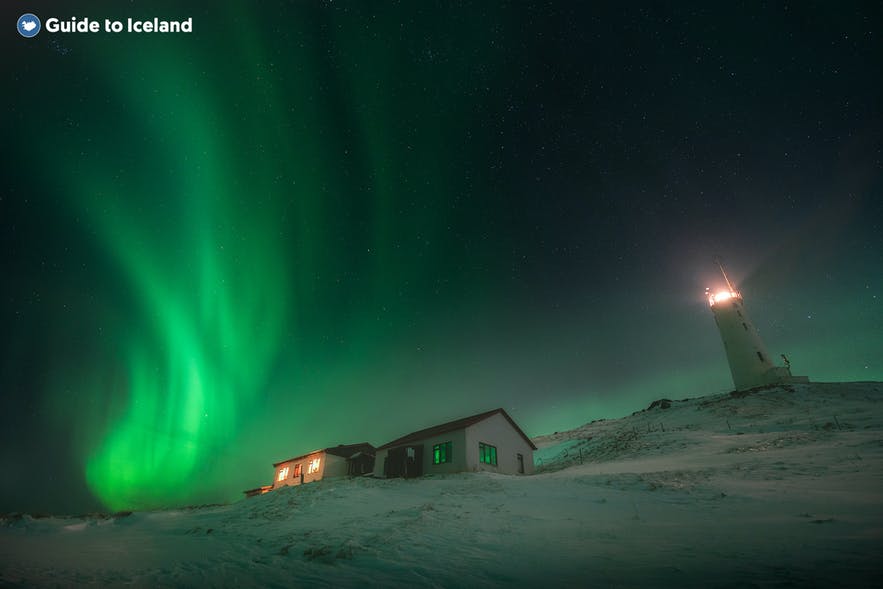 Average house prices and their inflation rate vary wildly between Iceland’s different regions and population trends.
Average house prices and their inflation rate vary wildly between Iceland’s different regions and population trends.
And yet you should keep in mind that the market is flexible, and these rates continue to evolve in different directions, mainly due to four primary motives: current economy, interest rates, demographics, and government subsidies.
You should consider all of these before going forward on a proposed investment and before moving to Iceland. Relocating to another part of the world takes much consideration to surpass seemingly insurmountable obstacles, from securing housing to finding a job in Iceland.
One huge factor is the current trend of rising property prices, driven by Iceland's increase in visitors.
As you can expect, properties in the capital, Reykjavik, are more expensive than those in Iceland’s smaller towns. The purchase price of residential properties has increased by 8.4% since May 2023, reflecting the growing demand in the market.
Right now, over 85% of homes in the capital area have a property value of more than 60 million ISK (427,259.13 USD), making real estate in Reykjavik increasingly competitive.
- In the news: Reykjavik Real Estate Prices
The cheapest parts of the capital area to purchase property are the towns of Hafnarfjordur and Mosfellsbaer, both of which sit on the city’s outskirts. These locations follow the expected trend due to the limited amount of property closer to downtown.
In recent years, it has become clear that city construction cannot keep up with demand.
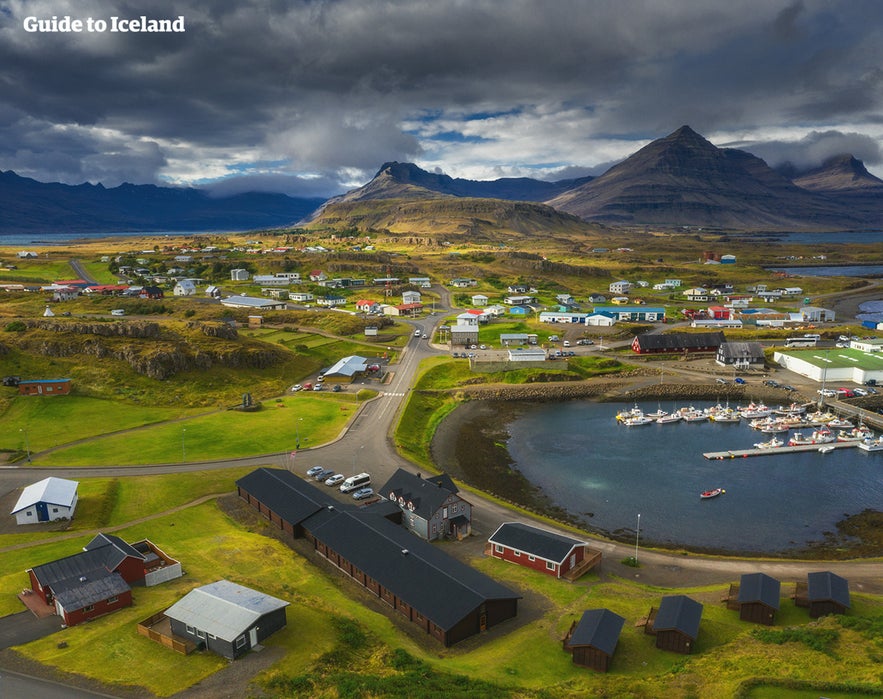
Akureyri in North Iceland is a popular location for property buyers, offering a vibrant community, stunning surroundings, and excellent amenities. It is the largest town outside the capital area, making it an attractive option for those looking to settle in a well-developed yet scenic part of the country.
Egilsstadir is the most expensive town to purchase property in East Iceland. This is because it has the largest population in the region (about 2,464 people) and has nearby amenities, including a hospital, college, and airport.
The cheapest area in the country to purchase property in is the sparsely populated Westfjords. In fact, in the past, the local municipality would give out real estate lots for free in hopes of growing the Westfjords population.
Why Buy Property in Iceland?
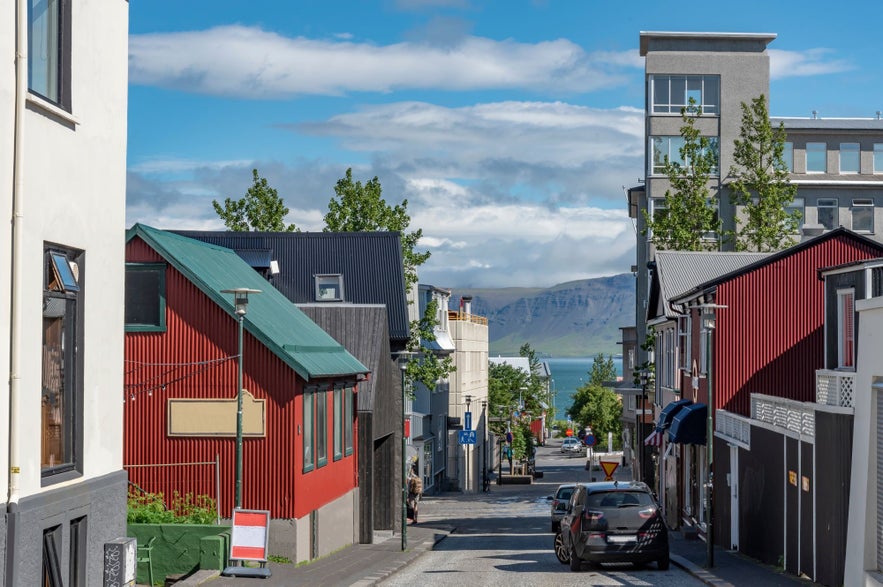 If you plan to live in Iceland, the benefits are clear. Renowned for its incredible scenery, forward-thinking, and richly creative culture, this country is one of Earth's safest and most beautiful locations.
If you plan to live in Iceland, the benefits are clear. Renowned for its incredible scenery, forward-thinking, and richly creative culture, this country is one of Earth's safest and most beautiful locations.
Granted, for what Iceland offers in captivating natural environments, it lacks in urban development, reflecting the country’s small population of approximately 383,726 people. One of the biggest reasons to purchase property here is an investment in Iceland's future.
The old days where Iceland was separate from international visitors and any influence on the world stage have long gone—the country commands too much interest from the outside.
With that interest, naturally, comes more funding. Despite the current issues with the construction pace in Iceland, this new funding means this nation's urban development is still very much in its early stages.
Building Property in Iceland
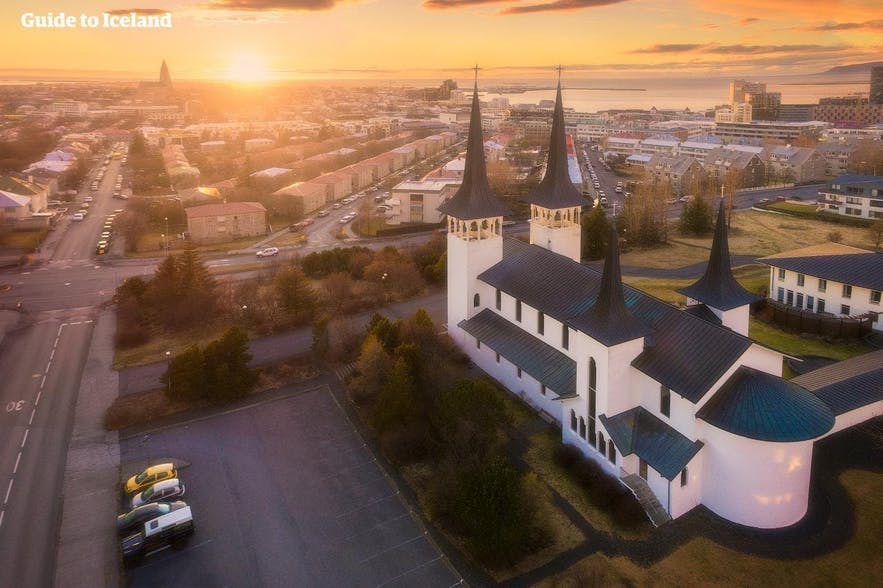
Speaking to local Icelanders, it is not uncommon to hear that an ancestor constructed their family homes back in the day. This has added to the island's unique architecture, with many examples showing the Icelandic knack for balancing home beauty with the surrounding environment.
This DIY approach to house-building has, naturally, become far more regulated over time. However, opportunities are still widely available for those looking to begin their journey with nothing but an empty lot, some blueprints, and a head full of ideas.
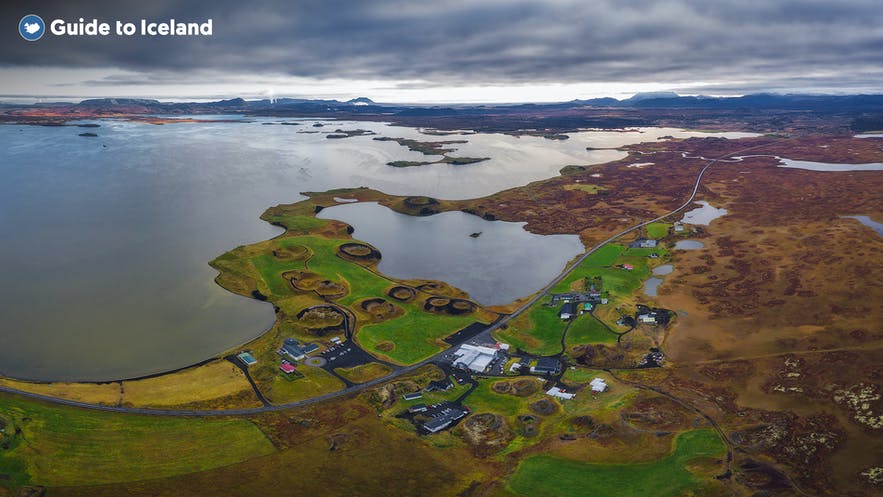
To build, rebuild, or alter a property with extensions, one must obtain a building permit from the local municipality’s inspector. The building inspector will converse with various committees to ensure the renovator meets all construction regulations before providing a permit.
Building property around any of the national parks in Iceland, including Thingvellir, Vatnajokull, and Snaefellsjokull National Park is banned due to the need to preserve each area's natural environment.
Where To Browse Properties in Iceland
 If you're looking to buy property in Iceland, a great place to start is by browsing local real estate websites. While working with a real estate agent is highly recommended—especially for international buyers—locals often search for listings themselves before reaching out to an agent.
If you're looking to buy property in Iceland, a great place to start is by browsing local real estate websites. While working with a real estate agent is highly recommended—especially for international buyers—locals often search for listings themselves before reaching out to an agent.
Here are some popular websites to explore available properties:
-
Fasteignir Visir: A widely used platform with various property listings across Iceland.
-
Mbl.is: Offers a broad selection of homes, apartments, and commercial properties.
-
Fasteignaleitin: A comprehensive search engine for real estate listings in Iceland.
Browsing these sites will give you a sense of the market, price trends, and available options. Once you find a property of interest, a local real estate agent can help you navigate the buying process, negotiate deals, and handle the legal requirements.
Real Estate Agents in Iceland
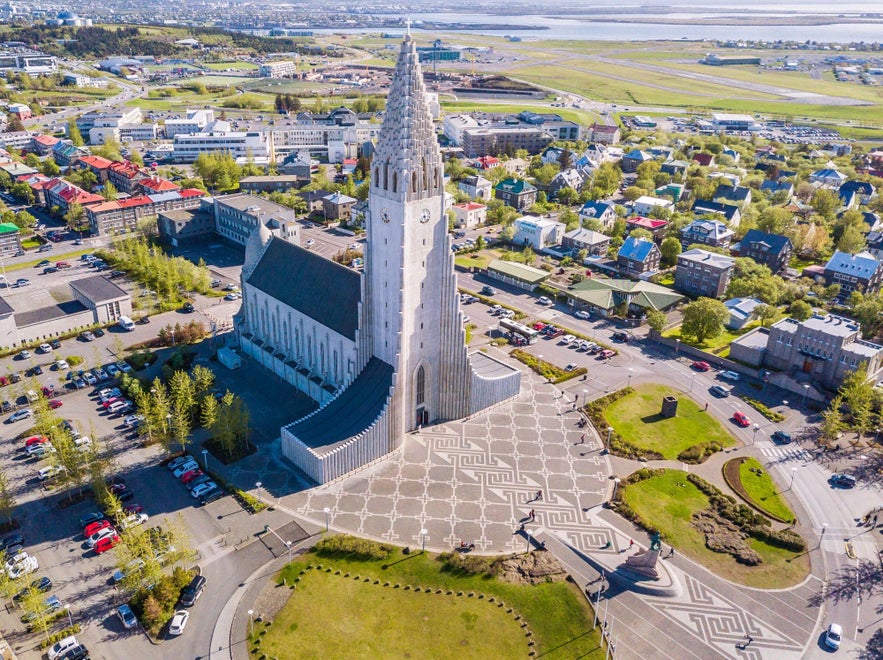 You'll likely need a local and English-speaking real estate agent to purchase property in Iceland, if only for the insider knowledge and purchasing opportunities they can offer. However, this does entail extra costs.
You'll likely need a local and English-speaking real estate agent to purchase property in Iceland, if only for the insider knowledge and purchasing opportunities they can offer. However, this does entail extra costs.
The real estate agent's fee can be between 1.5% and 2.5% of the property’s overall cost. Plus, the stamp duty rate for property transfer is around 2,000 ISK (14.23 USD), added to 0.8% of the official property value.
Finally, the cost of registering the property will be 0.1% of the property value. However, these agents will have a strong pulse on the homes for sale in Iceland.
Frequently Asked Questions About Buying Property in Iceland
Here are some of the most frequent questions about purchasing property in Iceland.
Can a foreigner buy property in Iceland?
Yes, foreigners can buy property in Iceland, but restrictions apply. Citizens from the European Economic Area (EEA) can purchase real estate without special permission as long as they are legally based in Iceland.
What is the average real estate price in Iceland?
Property prices vary by location:
-
New-build apartments in central Reykjavik cost over 1 million ISK (7,120.99 USD) per square meter.
-
Older homes in Reykjavik sell for around 900,000 ISK (6,408.89 USD) per square meter.
Can US citizens live in Iceland?
Yes, but long-term residency requires a permit. Under the Schengen Agreement, US citizens can stay in Iceland for up to 90 days without a visa. For stays beyond three months, they must apply for a residence permit through the Icelandic Directorate of Immigration.
Can I get a mortgage in Iceland as a foreigner?
While it is possible for foreigners to secure a mortgage in Iceland, most banks require a strong local financial connection, such as residency or a stable income in Icelandic krona.
Are there property taxes in Iceland?
Yes, Iceland has property taxes, which vary by municipality. Homeowners should also know maintenance costs and potential capital gains taxes if they sell later.
Can I buy property in Iceland as an investment?
Yes, but regulations apply, especially for short-term rentals like Airbnb. Some areas have restrictions on nonresident ownership for rental purposes.
What are the best areas to buy property in Iceland?
Reykjavik is the most popular but also the most expensive. More affordable options include surrounding towns like Hafnarfjordur, Mosfellsbaer, and even parts of South or East Iceland.
How long does the buying process take?
On average, it takes one to three months to finalize a property purchase in Iceland, depending on approvals and financing.
Are there downsides to living in Iceland?
While the benefits outweigh the downsides, Iceland has a high cost of living and harsh winters with limited daylight. Potential buyers should also consider housing shortages due to high demand and rental properties.
Experience Iceland Before You Buy
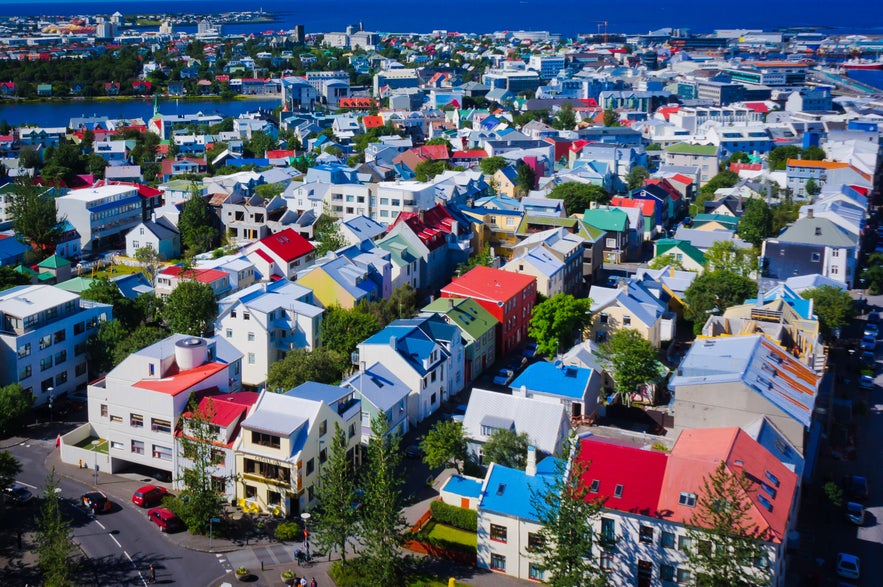 Buying property in Iceland is an exciting opportunity, whether you’re looking for a permanent home, a vacation retreat, or an investment.
Buying property in Iceland is an exciting opportunity, whether you’re looking for a permanent home, a vacation retreat, or an investment.
But before making such a big decision, we recommend exploring the country to get a true feel for its diverse landscapes, communities, and lifestyles.
One of the best ways to do this is through guided multi-day tours, which allow you to experience different regions firsthand. Whether it’s a South Coast of Iceland tour from Reykjavik or a 5-day northern lights winter package, these immersive experiences help you discover the unique characteristics of each area.
By traveling around Iceland with a rental car or guided by experts, you’ll gain valuable insight into where you’d love to call home, making your property purchase an even more informed and rewarding experience.
Have you considered buying property in Iceland? What’s your biggest question about the process? Let us know in the comments!

